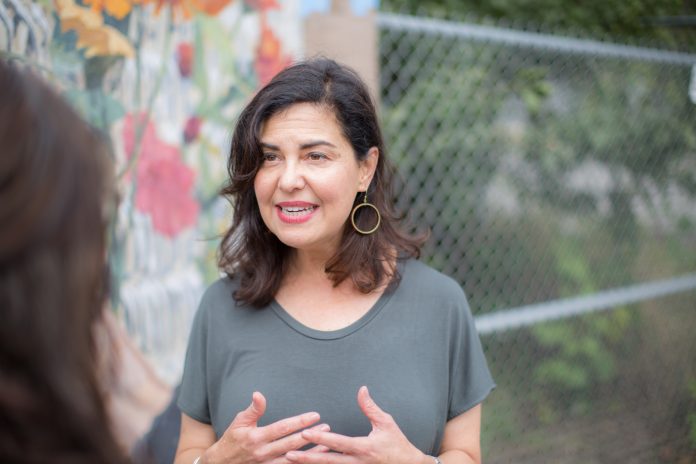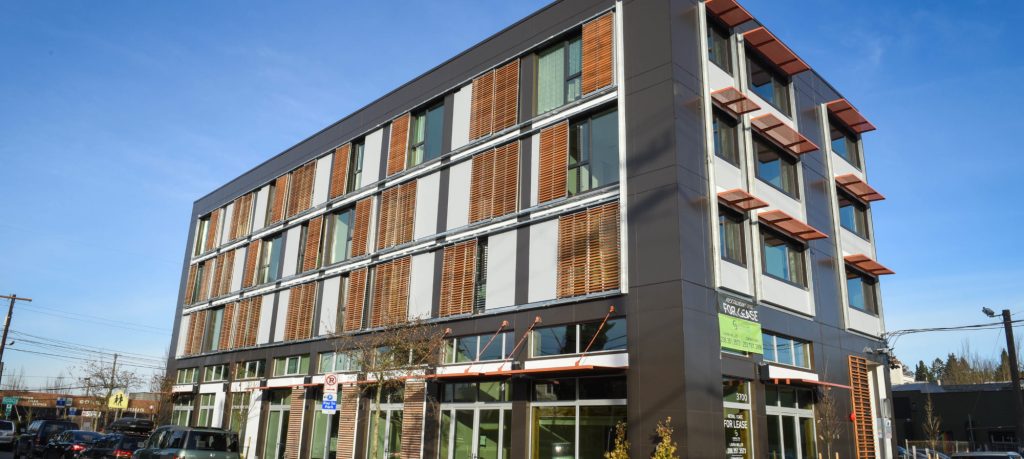
Councilmember Tammy Morales had hoped to lay some groundwork to expand social housing in Seattle, but her amendment did not make it into Budget Chair Teresa Mosqueda’s balancing package. The House Our Neighbors coalition gathered signatures to put Initiative 135 on the February 14th ballot. Passage of I-135 would set up a public developer of social housing aimed at a mix of income levels and built to eco-friendly Passive House specifications, but that entity would still need to line up funding to build housing.
“If I-135 passes, that will create a public developer. With this amendment we are trying to create the department within the City that that developer would partner with,” Morales said.
Morales’ amendment would have allocated about $500,000 in each of the next two years to add four staff positions at the Seattle Office of Housing to begin identifying development sites and funding streams. Councilmembers Andrew Lewis and Alex Pedersen had co-sponsored the amendment, which came of coalition-building work Morales’s team did with the Seattle Within Reach coalition, which includes advocates like Puget Sound Sage and AIA Seattle and affordable housing builders like El Centro de La Raza, Beacon Hill Group, and LIHI.
“Through that Seattle Within Reach coalition, we developed this idea of building the administration program for social housing,” Morales said. “Whether or not [I-135] passes, we think it makes sense to start walking down that path.”
The administration team would have two tasks, she added, the first would relate to the estimated 40 to 45 City-owned parcels that could accommodate housing. The City has made surplus land parcel lists before, but has been slow to convert those sites to housing or other uses.

“One is to assess current City property for potential development of mixed-income housing,” Morales said. “The property stays in City ownership. The idea is to lease it for 99-year leases to ensure the permanent affordability. The idea is to take that cost out of the equation… the added cost to developers in exchange for an agreement to build housing at this mix of income ranges from 0 to 120% [of area median income.]”
The second task is to oversee a new fund that Morales calls the municipal housing development fund, which would provide access to capital to these social housing projects, which would likely not being use standard federal Low Income Housing Tax Credits or Seattle Housing Levy funds.
Morales’ office is working with state legislators to try to get state funding to seed that fund. With some of the proposed new positions, Morales anticipated that the Office of Housing would hire folks who know the ins and outs of financing affordable housing projects to make sure they can get all the pieces in place to put the model into action.
The Housing Development Consortium, which represents affordable housing developers and funders, came out against I-135 claiming social housing was untested model that would compete with their own, siphoning resources. However, I-135 backers dispute that and argue the model is additive and complementary and highly successful in other countries. Councilmember Morales and her staff recently took a research trip to France to learn more about how social housing works there.
Morales submitted a form C amendment that adds the social housing amendment into the balancing package by identifying offsets — in this case Morales trims from the Mayor’s Clean Seattle initiative that’s focused on collecting litter and removing graffiti, in addition to a cut the mayor’s fellow program. She will need to get five votes to add this to the package.
Morales pointed out that shortfalls projected in the real estate excise tax proceeds is part of what blew a hole in the Seattle’s budget, but that this underscored to her that a more sustainable system is needed rather than simply chasing another real estate boom to paper over the issues.
“I agree completely that we need to keep building more housing, but that’s because we have such a dire housing shortage, not just for the purposes of generating more revenue,” Morales said. “We’re in a hard place right now.”
Councilmember Morales hoped to see more progressive revenue options that are durable in times of economic slowdown in order to keep funding housing and other essential social services in good times and bad.
“As we grow as a city, as we hopefully over the course of the Comp Plan conversation really change where we allow housing to be built and how we build healthy neighborhoods, I think we going to have to take into account what that means for the way we generate revenue and rely on the City budget.”
Doug Trumm is publisher of The Urbanist. An Urbanist writer since 2015, he dreams of pedestrianizing streets, blanketing the city in bus lanes, and unleashing a mass timber building spree to end the affordable housing shortage and avert our coming climate catastrophe. He graduated from the Evans School of Public Policy and Governance at the University of Washington in 2019. He lives in East Fremont and loves to explore the city on his bike.


